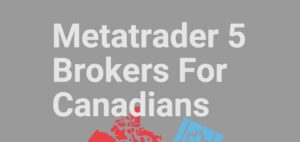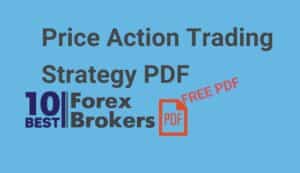What is Forex?
The term Foreign Exchange is commonly abbreviated as Forex. “For” denotes foreign and “Ex” denotes exchange. The actual product bought and sold in the forex market are the different global currencies. The differences in value between the currencies, of one country versus the currency of another country, is what makes the whole deal of profits and loss in forex trading.
The forex trading market does not have a centralized physical location to name. It is the largest decentralized financial market where currency traders buy, sell, exchange, speculate and trade currencies to make profits. The participants in the forex market are buyers and sellers who trade currencies through banks, commercial companies, central banks, investment management firms, retail forex brokers, and individual investors.
The global foreign exchange market is where the foreign exchange rates are determined. The exchange rates for currencies are determined by technical and fundamental factors. The forex market is interlinked by virtue of a network of technical devices, thereby making it possible for investors to be able to create a market place without a centralized location.
For any beginner in forex trading, however abstract the concept might seem to be, it is important to get used to certain forex terminologies. Understanding the terminologies used in forex is the first step to a successful start of the forex market.
Important Forex Terminologies
Ask Price: The ask price is the lowest price at which a specific seller is willing to accept for a currency. The selling rate is the price at which the dealers of currencies will be willing to sell a specific foreign currency. If you are a seller of a currency type you should propose an ask price for the buyers.
Bid Price: The bid price is the highest price that the buyer is willing to pay for a currency. The buying rate is the price at which the dealers of currencies will be willing to buy a specific foreign currency. If you are a buyer of a currency type you should propose a bid price for the sellers.
Spread: The price difference between the bidding price and the asking price is known as the spread. Spread is technically talked in terms of pips.
Pips: Is an acronym for “percentage in points” and it is the term used to refer to the smallest change in the price movement between the two currencies. Up to four decimal places are normally displayed in the leaderboard to display the spread. Pip is a change seen in the fourth decimal point.
Margin: To open a position in the forex market you need money. If you want to trade more, you need more money. To trade more, you are looking for some extra money or margin. In simple terms, you borrow money from the trading platform broker to be able to trade more. This is known as Margin. You increase your margin. To trade on a margin you need to open a margin account with a broker.
Leverage: The size of your position will decide the leverage you are eligible for like 100:1, 200:1. If you want to control a position that is worth 100,000 CAD, your broker will set aside 1000 CAD in your margin account and it is expressed as 100:1 in leverage. This means you can control 100,000 CAD position without bringing 100,000 CAD with you in deposit. If you have $1000 in the margin account borrowed from the broker you will be allowed to control 100,000 CAD. Similarly 200,000 CAD in a 200:1 position for 2000 CAD.
Where do profits come from in forex?
If the price of the currency that you have bought goes up than when you bought it and you sell it for a better price you are making a profit. In order to make profits in forex you hold the currency until you get a profit price for your currency. You sell it when you get a price at your ask price or a price above the ask price. The profits you can probably make depends upon the fluctuations in the bid price and spread. Sometimes you sell to make more profits. Sometimes you sell to avoid a loss.
Why should I be watching the exchange rates and signals?
You should watch the exchange rates and signals to make buy and sell decisions. Watching the exchange rates will help you develop a personal understanding of which currency type you are comfortable to trade with. To develop this understanding, you should watch the market fluctuations for different currencies.
With time you will develop an understanding of what are the factors that will influence the fluctuations in exchange rates. In no time, you will learn how fundamental and technical factors move the spread. Eventually, you will be able to make improved and well-informed trading decisions.
How do I get started with forex trading?
Opening an online trading account with a forex trading platform is the first step to starting off with forex trading. To get started, apply for an account with a trading platform. After basic verification checks, you can deposit money in to the trading account. Once you have money in to your account you can open positions and begin trading.
You learn forex trading every day. Understand the fundamental and technical indicators that rule your currency pair, watch for appropriate forex signals, make timely buy and sell decisions. Strategize your profit making by watching the rest of the currency trading world. Most forex brokers provide you with tutorials for everything under the sun you need to be a better forex trader.
Who are Forex brokers?
The overall foreign exchange market is huge. A forex broker is a trading firm who will be handling a very small volume of the overall market. They handle the small volume of the trade with the help of several hundred individual investors. To make this possible, they provide a trading platform to facilitate hundreds and thousands of individual investors to be able to trade in the forex market from the comfort of their home or from wherever they are through the internet. For best trading platforms you pay a nominal broker fee on your trades, which can be either fixed or fluctuating depending upon the terms proposed by your broker.
Who are regulatory bodies?
In each country, there are government institutions, independent financial institutions, and independent regulators who oversee forex brokers and regulate their trading practices. Regulatory bodies help avoid foreign exchange fraud.
“The following are the most important of the regulatory bodies:
- ASIC – Australian Securities and Investments Commission
- BaFIN – The Bundesanstalt für Finanzdienstleistungsaufsicht (Germany)
- CFTC – Commodities and Futures Trading Commission (United States)
- CySec – Cyprus Securities and Exchange Commission
- FCA – Financial Conduct Authority (United Kingdom)
- FFMS – Federal Financial Markets Service
- FINMA – Swiss Financial Market Supervisory Authority
- FMA – Financial Market Authority (Austria)
- FSA – Financial Services Agency
- FSB – Financial Services Board (South Africa)
- Financial Services Commission – BVI
- Financial Services Commission (FSC) – Mauritius
- IFSC – International Financial Services Commission
- FSP NZ – New Zealand Financial Service Provider
- ISA – Israel Securities Authority
- MFSA – Malta Financial Services Authority
- VFSC – Vanuatu Financial Services Commission
- UAE – Abu Dhabi Central Bank”
Forex trading platforms
Forex trading platforms are a kind of trading software that enable individual forex traders to be able to perform an analysis of the forex market as well as to execute their forex trades. Depending upon the programming language that is used to program the platform “ MetaTrader (MT4 and MT5), programmed with the Metaquotes Language (MQL), ActTrader, programmed with the ActFX programming language, cTrader, Currenex, and TradeStation programmed with the Lua programming language are just a few to name from many.
Forex Trading Strategies
There are Beginner, Intermediate, Advanced and Professional level strategies applicable in a forex trading process. The kind of strategy that one might want to adopt depends upon their financial goals, risk appetite and of course, their investment capability. Some trade the news, some rely on fundamental and technical indicators, and some mix it all to suit the trend.
Managed Forex Accounts
Managed forex accounts are accounts that come to you with account managers. This is an account type where you just invest the money. Your fund managers will be doing the trading for you. You will be getting your profits without any work from your part. Ideal, if you do not have time to watch the market on your own.
Social Forex Trading / Copy Trading
Social forex trading is where you copy the signals of real-time investors who are actively trading and you exactly follow their same steps in your strategy. Since you will be replicating their trading moves this is known as copy trading. However, it is you who will decide whom to copy.
What are Forex Signals?
A forex signal is an indicator or suggestion that helps you decide whether you should buy or sell. Forex signals are either generated by machines or it is given by human analysts.
Risks in Forex Trade?
In the absence of appropriate risk management strategies, the trader will lose. You need to set your stop loss. When you are margin trading you need to understand the reward and risk ratio and you need to design your strategies accordingly.
Currency Pairs
You need to understand Base currency and Counter currency when discussing currency pairs.
For example, in a quotation expressed as EUR/USD = 1.30, the EUR is the base currency and the USD is the counter currency. You will be exchanging 1 euro for 1.30 USD.
The most traded currency pairs are known as major currency pairs. “EUR/USD, USD/JPY, GBP/USD, AUD/USD, USD/CHF, NZD/USD and USD/CAD” are major currency pairs and they contribute to 85% in the exchange market. The rest of the currency pairs are minor pairs.
Types of Forex Brokers
There are different type of brokers they are:
- The dealing desk brokers (Market Makers)
- The non-dealing desk brokers
The dealing desk brokers offer fixed market spreads, when there is no matching price they will take the opposite side of your trade. They offer artificial quotes that are pretty much close to the interbank rates. The brokers fill the order on a discretionary basis.
The non-dealing desk brokers are further classified in to:
- STP (Straight through processing)
- ECN+ STP (Electronic Communication Network + Straight Through Processing)
STP brokers have variable spreads. They simply act as a connecting bridge between the client and the liquidity provider. There is automatic execution and there are no re-quotes. The price comes from the liquidity provider.
ECN+ STP brokers have variable spreads or commission fees. They simply act as a connecting bridge between the client, liquidity provider, and other participants. There is automatic execution and there are no re-quotes. The price comes from the liquidity provider and other types of ECN providers. The liquidity information and depth of the market is displayed.
Time to Get Started
You need to know only so much of beginner terminologies and concepts to get started, the rest of the terminologies are those that you will get used to as you practice trade. Spending some decent hours at practice trade is crucial to get started. Do not practice forever. Once you get used to the basics, refine your risk appetite and get started with real time, real money trade. Fake trades will not take you too long than just getting used to basics. So, focus on getting on to real time trade as soon as possible.




